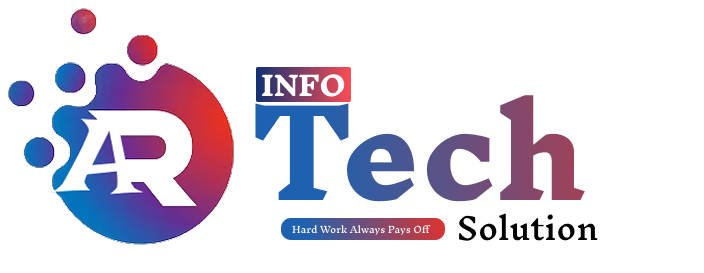What is Digital Marketing? How it Works
Digital marketing is the promotion of products, services, or brands via digital channels such as search engines, websites, social media, email, and mobile apps. Unlike traditional marketing, digital marketing enables firms to engage with their target audience in real time and measure their interactions, making it more efficient and measurable.
Key Components of Digital Marketing

1. Search Engine Optimization (SEO):
- SEO is the practice of optimizing your website’s exposure on search engines such as Google. It entails a variety of tactics, including keyword research, on-page optimization, and the creation of high-quality backlinks. Effective SEO helps your website rank higher in search engine results pages (SERPs), resulting in more organic traffic.
- On-page SEO focuses on improving individual web pages’ rankings. This includes employing relevant keywords, improving meta tags and headers, and guaranteeing high-quality content.
- Off-page SEO refers to activities that take place outside of your website and have an impact on its ranking, such as building backlinks from respected sites and using social media marketing.
- Technical SEO ensures that your website meets search engines’ technical standards, such as site performance, mobile friendliness, and correct indexing.
2. Content Marketing:
- material marketing entails generating and delivering valuable, relevant material to attract and engage your target audience. Its goal is to provide information that solves issues or answers questions, eventually leading to consumer conversions and brand loyalty.
- Blogging is the process of generating useful and entertaining blog entries that address the needs of your target audience regularly.
- Infographics are visual representations of information that are easy to comprehend and distribute.
- Videos: Creating interesting video material to attract the audience’s attention and successfully communicate messages.
- Ebooks and whitepapers: Comprehensive literature that contains thorough information on specific themes.
3. Social Media Marketing:
- Social media marketing uses networks such as Facebook, Instagram, Twitter, and LinkedIn to promote your business and interact with your target audience. It promotes brand awareness, increases traffic to your website, and generates leads.
- Content Creation: Creating compelling content for each platform.
- Community engagement entails interacting with followers, responding to comments, and participating in discussions.
- Paid advertising involves running tailored ads to attract specified demographics and achieve business objectives.
4. Pay-Per-Click (PPC) Advertising:
- PPC advertising is a model in which advertisers pay a fee whenever their ad is clicked. It is a method of purchasing visits to your website rather than generating them organically. PPC advertisements may appear on search engines, social media platforms, and other websites.
- Google adverts: Businesses can bid on keywords to have their adverts displayed in Google’s search results.
- Social media ads: Platforms such as Facebook and Instagram provide highly targeted advertising alternatives.
- Display Ads: Visual advertisements that appear on websites in the Google Display Network.
5. Email Marketing:
- Email marketing is the process of providing targeted communications to your audience via email. It is an inexpensive way to generate leads, retain clients, and increase sales.
- Newsletters: Subscribers receive regular updates with excellent content and news.
- Promotional emails include discounts, special deals, and product launches.
- Automated Campaigns: Pre-scheduled emails that are triggered by specified events, such as a welcome email when someone subscribes.
6. Affiliate Marketing:
- Affiliate marketing entails working with other companies or individuals to promote your products. Affiliates receive a commission for each sale or lead produced through their marketing efforts.
- Affiliate networks are platforms that connect businesses and affiliates.
- Tracking and reporting: Keep track of affiliate performance and ensure that commission payments are accurate.
- Incentives include competitive commissions to recruit high-quality affiliates.
7. Influencer Marketing:
- Influencer marketing promotes your brand by leveraging influencers’ popularity and trustworthiness. Influencers have a large following on social media or other platforms, and their support can greatly increase your brand’s reach and credibility.
- Finding the Right Influencers: Identifying influencers with audiences similar to your target market.
- Collaborations involve working with influencers to provide sponsored content, reviews, or product placements.
- Measuring ROI: Monitoring the performance of influencer efforts to verify their efficacy.
8. Online Advertising:
- Online advertising includes a variety of digital adverts such as display ads, banner ads, and video commercials. These advertisements run on websites, social media platforms, and other digital mediums.
- Targeting is the use of data to target adverts to specific audiences based on demographics, interests, and behaviors.
- Creative Development: Creating visually appealing advertisements that draw attention and convey your message.
- Performance tracking is monitoring ad performance and making adjustments to improve outcomes.
9. Mobile Marketing:
- Mobile marketing focuses on reaching people via smartphones and tablets. This encompasses mobile-friendly websites, applications, SMS marketing, and in-app advertising.
- Responsive Design: Ensure that your website is mobile-friendly.
- App Development: Creating mobile apps that provide value to your target audience.
- SMS campaigns involve sending targeted text messages including offers and information.
- In-App Ads: Advertising within mobile apps to reach active users.
10. Analytics and Data-Driven Marketing:
- Data is the foundation of digital marketing. Businesses employ analytics tools to monitor and evaluate the effectiveness of their efforts. Marketers can use data analysis to better understand customer behavior, spot patterns, and enhance their tactics.
- Google Analytics is a useful tool for monitoring website traffic and user behavior.
- Social Media Analytics: Tools such as Facebook Insights and Twitter Analytics provide information about social media performance.
- Conversion Tracking: Tracking how many visitors complete a desired action, such as completing a purchase or filling out a form.
How Digital Marketing Agencies Work
Digital marketing organizations provide a variety of services to assist businesses reach their marketing objectives. These companies often offer SEO, content development, social media management, PPC advertising, email marketing, and other services. Here’s how they operate:
1. Initial Consultation:
Agencies start by learning about their clients’ businesses, goals, and target audiences. This allows them to develop a targeted digital marketing strategy.
2. Strategy Development:
Based on the client’s requirements, the firm develops a comprehensive marketing strategy. This includes creating key performance indicators (KPIs), setting objectives, and outlining the techniques that will be implemented.
3. Implementation:
The agency executes the marketing strategy by implementing numerous tactics and campaigns across several media. This could include developing content, running advertisements, managing social media profiles, and more.
4. Monitoring and Optimization:
Agencies regularly analyze campaign results, tracking progress with analytics tools. They make data-driven changes to improve performance and ensure that marketing activities are successful.
5. Reporting:
Clients receive regular reports showing campaign performance and return on investment (ROI). This transparency allows clients to better understand the impact of their digital marketing initiatives.
How to Get Started in Digital Marketing

Starting a career in digital marketing or leveraging it for your business involves several steps:
1. Learn the Basics:
Understand the fundamentals of digital marketing, such as SEO, content marketing, social media, PPC, and email marketing. Online courses and certificates from platforms such as Google and HubSpot can be useful.
2. Gain Experience:
Take on personal projects or internships to gain real experience. Create a blog, manage social media accounts, or volunteer to assist local businesses with their digital marketing efforts.
3. Get Certified:
Enroll in digital marketing classes and get certified. These qualifications might help you improve your resume and showcase your competence to potential employers or clients.
4. Network:
Connect with industry experts, attend events, and participate in online communities. Networking can bring significant insights, opportunities, and support as you advance in your career.
5. Stay Updated:
Digital marketing is continuously growing. Keep up with the newest trends, tools, and best practices by reading industry blogs, attending webinars, and engaging in online forums.
How to Become a Freelance Digital Marketer

Becoming a freelance digital marketer offers flexibility and the opportunity to work with diverse clients. Here’s how to get started:
1. Build a Portfolio:
Create a portfolio showcasing your skills and past work. Include case studies, testimonials, and examples of successful campaigns you’ve managed.
2. Set Your Rates:
Determine your pricing structure. Consider offering packages for different services and be transparent about your rates.
3. Find Clients:
Use freelance platforms like Upwork, Fiverr, and Freelancer to find clients. Network with professionals and businesses to identify potential opportunities.
4. Market Yourself:
Create a website and social media profiles to promote your services. Share valuable content, engage with your audience, and showcase your expertise.
5. Deliver Quality Work:
Focus on delivering high-quality results for your clients. Positive reviews and word-of-mouth referrals can help you build a strong reputation.
How to Get Freelance Digital Marketing Projects

Securing freelance digital marketing projects involves proactive efforts and strategic networking. Here are some tips:
1. Leverage Freelance Platforms:
Join platforms like Upwork, Fiverr, and Freelancer. Create a compelling profile and regularly bid on relevant projects.
2. Network:
Attend industry events, join online communities, and connect with professionals on LinkedIn. Networking can lead to referrals and new project opportunities.
3. Showcase Your Work:
Maintain a portfolio website that highlights your skills, case studies, and client testimonials. A strong online presence can attract potential clients.
4. Offer Value:
Provide valuable insights and advice through blog posts, social media, and webinars. Demonstrating your expertise can build trust and attract clients.
5. Ask for Referrals:
Encourage satisfied clients to refer you to others. Referrals can be a powerful source of new projects.
How Digital Marketing Works for Business

Digital marketing offers numerous benefits for businesses, including increased visibility, better engagement, and higher conversions. Here’s how it works for businesses:
1. Increased Reach:
Digital marketing enables businesses to reach a global audience. With the right strategies, you can target specific demographics and expand your market reach.
2. Better Engagement:
Through social media, email, and interactive content, businesses can engage with their audience in real-time. This interaction fosters relationships and builds customer loyalty.
3. Cost-Effective:
Compared to traditional marketing, digital marketing is more cost-effective. Businesses can allocate their budget more efficiently and track the ROI of their campaigns.
4. Measurable Results:
Digital marketing provides measurable results. Analytics tools allow businesses to track website traffic, conversion rates, and other key metrics, enabling data-driven decision-making.
5. Higher Conversions:
Targeted digital marketing strategies, such as PPC and email campaigns, can lead to higher conversion rates. By reaching the right audience with the right message, businesses can achieve better results.
Conclusion
Digital marketing is a dynamic and multifaceted approach to reaching and engaging with your audience online. By understanding how it works and leveraging its various components, businesses can create effective marketing strategies that drive growth and success. Whether you’re looking to start a career in digital marketing or grow your business, mastering these techniques is essential in today’s digital landscape.


